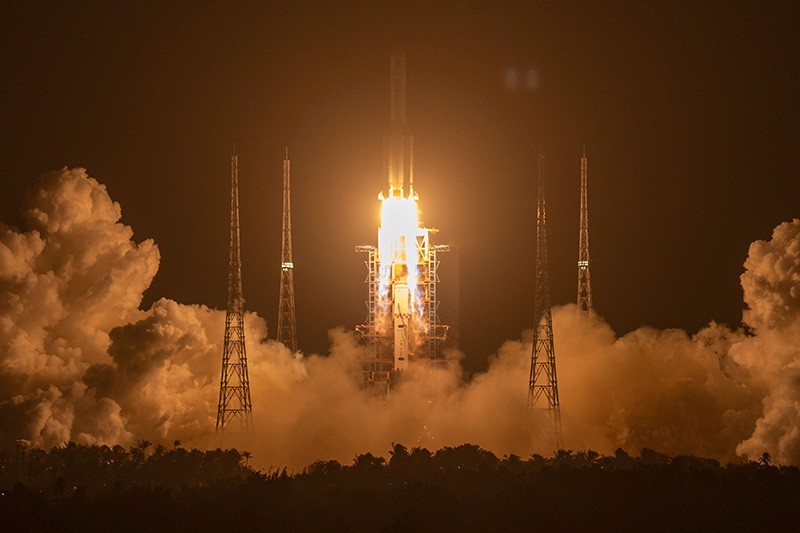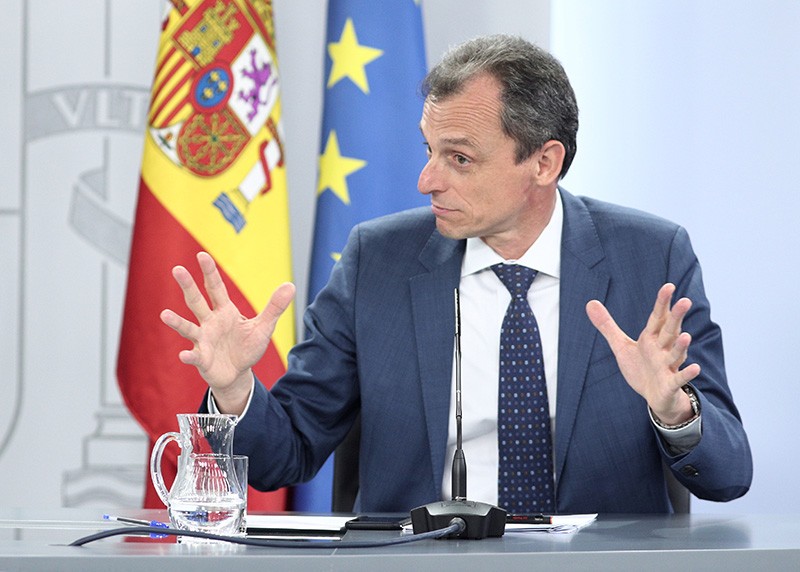China probe on way to Moon
A Chinese spacecraft is on its way to the Moon after launching off the coast of Hainan Island in southern China at 4.30 a.m. local time on 24 November.
Chang’e-5’s mission is to retrieve rocks from the Moon and return them to Earth. If successful, the craft will be the first to collect lunar material in 44 years — and the mission will be a first for China, ushering in the next phase of its increasingly complex lunar-exploration programme. Several Chang’e spacecraft, which are named after a Chinese Moon goddess, have reached and touched down on the Moon.
Chang’e-5 blasted off from Wenchang Satellite Launch Center aboard the Chinese Long March-5 rocket. Its 800,000-kilometre round trip to the Moon will take about three weeks.
“This will greatly encourage people, especially the younger generation, to study and explore the worlds beyond our Earth,” says Xiao Long, a planetary geologist at the China University of Geosciences in Wuhan.
If the mission achieves its goals, it will mark the beginning of a new era of robotic sample returns from the Moon, which will undoubtedly change scientists’ understanding of the planetary body, says Clive Neal, a geoscientist at the University of Notre Dame in Indiana. “Now we wait for the samples to be collected and returned.”
Execution looms for Iran scholar on death row
A medical researcher sentenced to death in Iran three years ago on a charge of spying — which he denies — is under threat of imminent execution, Nature has been told.
As Nature went to press, Ahmadreza Djalali, a scholar in disaster medicine who has dual Iranian–Swedish nationality, was nearing the end of a week of solitary confinement at Evin prison in Tehran, where he has been held since 2016. He is expected to be transferred to Rajai Shahr prison, west of Tehran, where the execution could be carried out, according to a letter dated 24 November that carries the name of Mohammad Barae, understood to be a judge in Iran’s legal system.
Vida Mehrannia, Djalali’s wife, told Nature she had received a telephone call from him on 25 November in which he said he was being moved to solitary confinement, and then to a different prison to be executed.
“This letter looks to be a court order from a judge declaring that the death sentence is to be carried out,” says Ziba Mir‑Hosseini, a scholar of Iran’s legal system who is based at SOAS University of London.
Human-rights organizations, researchers and Sweden’s foreign ministry are urging Iranian head of state Ali Khamenei to show clemency.
Spanish scientists celebrate huge budget boost
Scientists in Spain have welcomed a boost to their research budget, which they hope could help to reverse damage done by a decade of cuts. The Spanish government’s draft budget for 2021 increases the science ministry’s funds by nearly 60% compared with 2020. If approved, the boost would raise the ministry’s budget to €3.2 billion (US$3.8 billion) — the most ever earmarked for science in Spain.
“My eyes almost popped out,” says Amaya Moro-Martín, a researcher at the Space Telescope Science Institute in Baltimore, Maryland, who is from Spain and in 2012 co-led a protest of scientists against the country’s austerity measures.
Much of the increase comes from a European Commission programme for member states hit hardest by the COVID-19 pandemic. Spain will receive €140 billion from the European Union over six years. For 2021, the government has devoted €1.1 billion of EU money to the science ministry, and added €2.1 billion from its own coffers.
Many researchers hope that the cash will help institutes to renew their facilities and hire more staff.
The budget must now pass through Parliament. Science minister Pedro Duque told Nature he was confident it would do so.








 User Center
User Center My Training Class
My Training Class Feedback
Feedback















Comments
Something to say?
Log in or Sign up for free